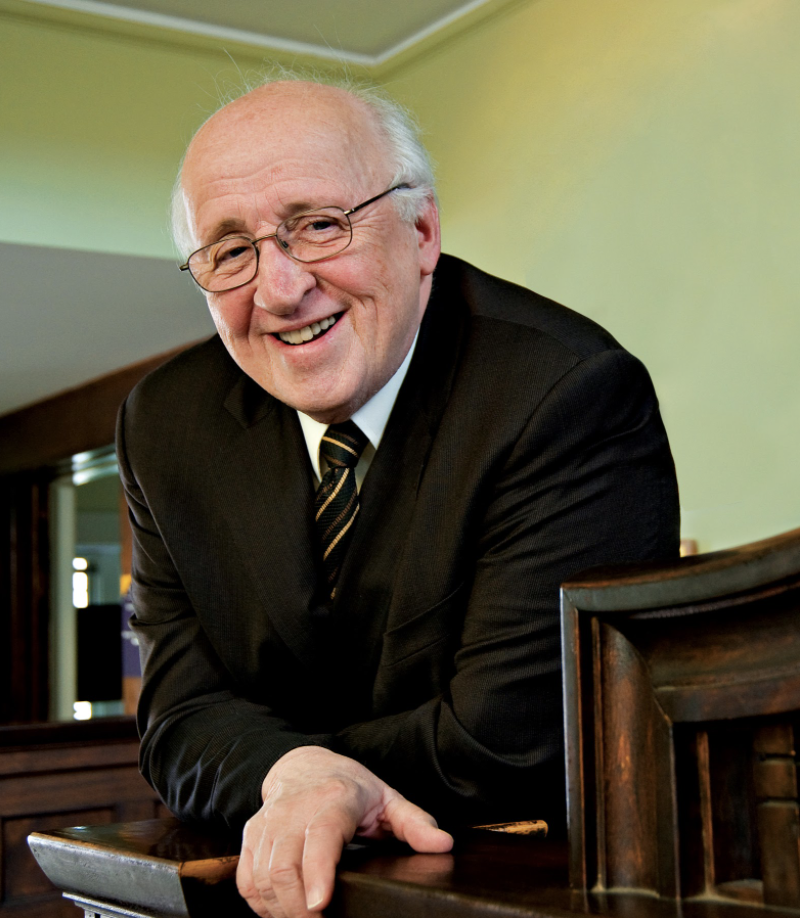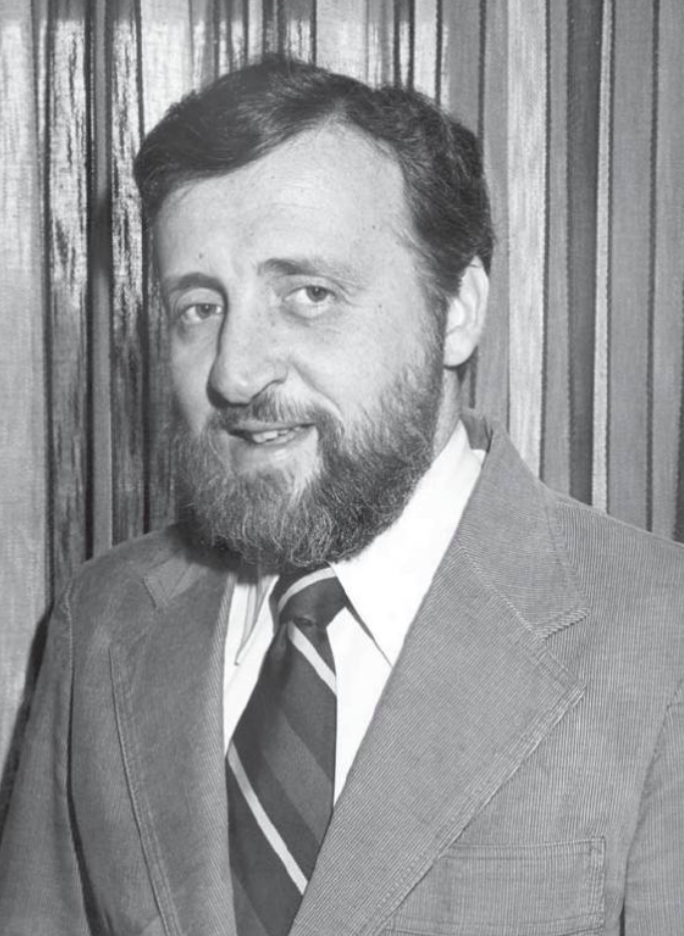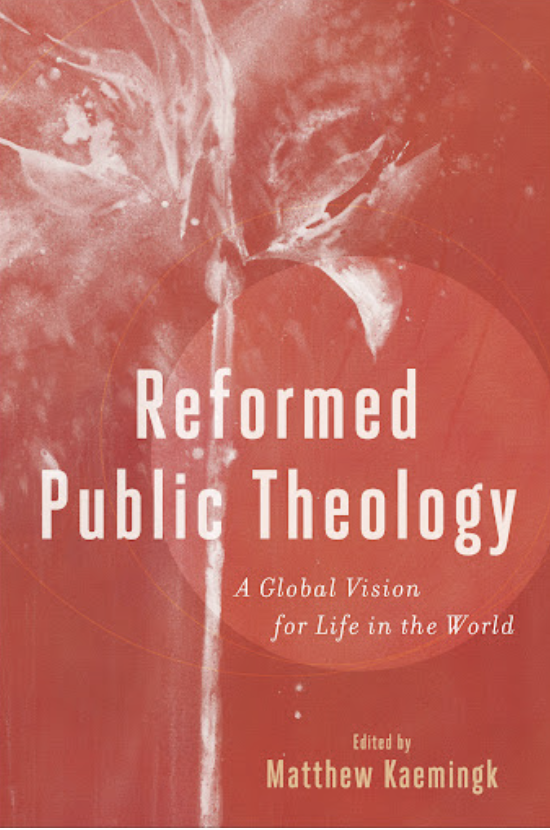The Richard John Mouw Institute of Faith and Public Life
The Holy Worldliness of Richard Mouw
 The Richard John Mouw Institute of Faith and Public Life was founded to honor one of the world’s leading voices in Reformed philosophy, ethics, and public theology. With an academic career spanning more than fifty years, Richard Mouw has published more than twenty books, hundreds of articles, and has traveled the world over, speaking on a wide range of public issues including politics, race, science, globalization, interfaith dialogue, nuclear disarmament, poverty, marketplace ethics, and Christian education.
The Richard John Mouw Institute of Faith and Public Life was founded to honor one of the world’s leading voices in Reformed philosophy, ethics, and public theology. With an academic career spanning more than fifty years, Richard Mouw has published more than twenty books, hundreds of articles, and has traveled the world over, speaking on a wide range of public issues including politics, race, science, globalization, interfaith dialogue, nuclear disarmament, poverty, marketplace ethics, and Christian education.
Addressing these complex global issues, Richard Mouw has consistently drawn insight and inspiration from the Reformed tradition. Its hymns and catechisms, devotionals and prayers; its historic works of philosophy and theology; all these inform the way Mouw engages public life. For over fifty years Mouw has made a career of harvesting these theological resources and articulating, in creative and generative ways, how they might inform Christian engagement in public life.
Even though Richard Mouw loves Reformed theology, he does so with critical appreciation, not blind adoration. Calvinistic chauvinism makes him bristle. Mouw readily names the tradition’s weaknesses and blind spots. He repeatedly calls upon his fellow Calvinists to humble themselves, listen to their critics, and learn from other traditions, other faiths, and other cultures. After listening with genuine curiosity and vulnerability, Mouw calls upon the tradition to publicly confess, get up, and reform yet again.
For Mouw, Reformed public theology can never be an abstract intellectual exercise. Instead, it must carefully deal with the deep complexity, beauty, and brokenness that is life in this world. Thus Mouw’s work should be understood as a constant search for a “holy worldliness,” as he calls it, a righteous way of being in the world. Longing to faithfully navigate the complex avenues and arteries of public life, Mouw’s writings are shot through with this search for a holy worldliness.
The Search for Holy Worldliness
Richard Mouw came of age in the 1960s, and his public theology developed amid the tempest that was American public life in the age of revolution. As a doctoral student in philosophy at the University of Chicago and also both an evangelical Christian and a passionate activist, Mouw was particularly engaged with the issues of poverty, racism, and civil rights. He was an active member of the anti-war movement and the SNCC (the Student Nonviolent Coordinating Committee). In all this, Mouw was fueled by a deep and pious love for Christ and a burning desire to see Christ’s justice made manifest in public life. He would study the political philosophy of Kant, Locke, and Rousseau during the week; then the weekends would be split between organizing in the streets and worship in the sanctuary. From an early age, Mouw was convinced that he could, in fact that he should, sing songs of praise and songs of protest. The reign of God had to be proclaimed, not simply in the church but in the city as well. From an early age, these three callings to philosophical reflection, political action, and spiritual devotion were constantly churning in Mouw’s mind and heart in uncomfortable but profoundly generative ways. Later, on the first page of his first book, Mouw writes: “My training within the environs of ‘conservative-evangelical’ Christianity did not provide me with a theological framework adequate to deal with the concerns over social justice, racism, and militarism that were so much a part of the years I spent doing graduate study at secular universities. Yet it seemed to me then . . . that such concerns must be integrated into a larger concern for sound theology and faithful witness.”
The New York Times interviewed Richard Mouw in 1976 about this particular period of his life. He replied,
It was very lonely for a while, to be an Evangelical and an activist,” he told me. “I was brought up in the heart of the Fundamentalist tradition, the kind where every Sunday you pledge ‘I put my all on the altar.’ I went to a small Fundamentalist college in upstate New York, and I didn't start to re‐examine anything until 1961 when I went to the University of Chicago for graduate work. There I was very much taken with Martin Luther King's prophetic calls. I went to anti-war rallies. I started working with the American Friends’ Service Committee. I was against being [drafted]. I felt that being critical of the social dimension was a direct extension of the religion that says, ‘Put your all on the altar,’...
In his book Moral Minority, David Schwartz reports that for Richard Mouw
Old gospel hymns finally bridged the chasm between evangelical piety and radical politics. Lyrics such as “Is all on the altar of sacrifice laid?” “I surrender all,” and “Break down every idol, cast out every foe” seemed to connect social action with the ultimate demands of following Christ. “Why shouldn’t our draft cards be placed on the altar of sacrifice?” Mouw asked. “Shouldn’t Jesus be made the Lord of what we do when we enter the voting booth? Mustn’t we surrender our racism, our fondness for military solutions, and our ethnocentrism to his control?” This line of questioning brought Mouw to spiritual crisis one afternoon in his Chicago apartment. Fiddling with the radio dial, he came across the Moody Bible Institute Chorale singing an old hymn: “There is a fountain filled with blood; Drawn from Immanuel’s veins; And sinners, plunged beneath that flood, Lose all their guilty stains.” Mouw was deeply moved:
“I felt like I was discovering for the first time the real power of an evangelical faith. Nothing I had been studying in recent years, both in my philosophy courses and in my personal search for a way of tying things together—no secular perspective, no social gospel theology, no tract on “political Christianity”—had the radical depth of the solution the Moody choir was singing about. All of our guilty stains! Not only the very real guilty stains of my personal life but also the stains of our racism and nationalism and militarism. I knew, in that very moment, that while I had to keep wrestling with many of the trappings of evangelicalism, I had no choice but to do so as an evangelical.”
 Dissatisfied with the public imaginations of the Christian right and the Christian left, the young Mouw ultimately found a home in Reformed public theology. Therein Mouw has spent a career developing and embodying what we might call a “third way” for American Christians to engage in public life. This third way comes to the fore in Mouw’s somewhat playful use of paradoxical phrases like “holy worldliness,” “political evangelism,” “convicted civility,” “principled pluralism,” “baptismal politics,” and “common grace.” In each of these phrases, Mouw invites his readers to question their more narrow or ideologically bound paradigms for thinking about the connections between faith and public life. What if “evangelism” is both spiritual and material? What if baptism is both personal and political? What if Christians are called to be a public force of conviction and civility, principles and pluralism? What if God’s grace is uniquely manifest in the cross of Jesus Christ and yet we also see God’s goodness mysteriously manifesting itself in our Muslim neighbors? Writing for an American audience gripped by myopic ideologies bereft of humility, creativity, or imagination, Mouw’s playful questioning and vulnerable curiosity consistently model a public-theological imagination that invites a creative dialogue rather than a didactic monologue. The conversation is not closed down: it is opened up.
Dissatisfied with the public imaginations of the Christian right and the Christian left, the young Mouw ultimately found a home in Reformed public theology. Therein Mouw has spent a career developing and embodying what we might call a “third way” for American Christians to engage in public life. This third way comes to the fore in Mouw’s somewhat playful use of paradoxical phrases like “holy worldliness,” “political evangelism,” “convicted civility,” “principled pluralism,” “baptismal politics,” and “common grace.” In each of these phrases, Mouw invites his readers to question their more narrow or ideologically bound paradigms for thinking about the connections between faith and public life. What if “evangelism” is both spiritual and material? What if baptism is both personal and political? What if Christians are called to be a public force of conviction and civility, principles and pluralism? What if God’s grace is uniquely manifest in the cross of Jesus Christ and yet we also see God’s goodness mysteriously manifesting itself in our Muslim neighbors? Writing for an American audience gripped by myopic ideologies bereft of humility, creativity, or imagination, Mouw’s playful questioning and vulnerable curiosity consistently model a public-theological imagination that invites a creative dialogue rather than a didactic monologue. The conversation is not closed down: it is opened up.
Following his doctoral studies at the University of Chicago, Richard Mouw moved to Michigan in the summer of 1968 to serve Calvin College as a professor of Christian philosophy. While there, he and his wife, Phyllis, helped to establish an intentional Christian community in the heart of one of the poorest neighborhoods in Grand Rapids. At the time, Worden Street was a largely Black neighborhood that had been hit hard by economic and racialized forces within the city. White residents (many of them Reformed) had fled the neighborhood for the comfort and security of the suburbs. Richard and Phyllis, along with their young son, Dirk, joined several other Christian families to reinvest in the neighborhood. The families purchased some homes on Worden Street and founded what they called “the Community.” The fourfold purpose of “the Community” came to embody much of the public theology that Richard Mouw wrote about for the next fifty years. First, they would regularly gather for meals, prayer, worship, and Scripture study. Second, they would house and mentor young Calvin students. Third, they would live alongside, learn from, serve, and invest in the neighbors and the surrounding neighborhood. Fourth, they would support the neighborhood’s local Christian school and its efforts to serve the neighborhood children with high-quality Christian education. Here in “the Community,” we see the unique combination of education and action, piety and community, friendship and mentoring, as shown in the life and career of Richard Mouw.
In 1985, after seventeen years at Calvin College (now Calvin University), Mouw and his family left Worden Street and moved to California, where Richard served as a professor of Christian ethics and philosophy at Fuller Theological Seminary. Here Mouw’s potential for institutional leadership quickly developed as he was appointed to the position of provost in 1989 and president in 1993. During his tenure as president, Mouw became a nationally recognized leader in theological education and administration. For many years he served as a critically important voice within the Association of Theological Schools in the United States and Canada. Eventually he was named the association’s vice president.
As the leader of one of the largest seminaries within American evangelicalism, Mouw regularly served as a public voice for the movement and a critically important dialogue partner with the Catholic, Jewish, Mormon, and Muslim communities in the United States. Traveling, speaking, and preaching around the world on behalf of Fuller, Mouw invested a significant amount of time in building institutional relationships with Christian communities in China, South Korea, North Korea, Japan, and the Netherlands. These international experiences and interfaith dialogues shaped and informed his later writings in a wide variety of ways.
Following his retirement from the presidency in 2013, Mouw invested much of his time mentoring doctoral students. Their research placed Reformed theology into creative dialogue with a wide range of public issues, such as politics and literature, immigration and labor, racism and Islam, fashion and video games. Several of these researchers contributed important essays to this volume.
Who is Richard Mouw the teacher? As one of his doctoral students, I have three brief comments. First, Mouw approaches personal meetings with students with a sense of eager anticipation—as if these discussions are his own personal opportunity to learn something from us. He responds to our work, not with monologues or preordained solutions, but with new questions and new tensions with which he himself has been wrestling for years. Meetings are his opportunity to invite us into his wrestling. Second, Mouw is a champion of his students. He is always looking to create spaces, opportunities, and connections for his students to develop and grow. It is not uncommon to hear a secondhand report from some distant conference that Richard Mouw is singing the praises of one of his students. In his own selflessness, Mouw managed to cultivate an academic community in which doctoral students serve, support, and encourage one another (imagine that). Third and finally, the reason so many doctoral students came to study with Richard Mouw is rather simple. We suspected that he might be contagious. We wondered to ourselves, “If we hang around him long enough, might some of his character become our own?”
In 2020, after thirty-five years at Fuller Seminary, Mouw retired and returned to Calvin University to serve as a senior research fellow at the Paul B. Henry Institute for the Study of Christianity and Politics. As a research fellow there, Mouw returns to his first love: the intersection between political philosophy and Reformed theology. At this moment in American public life, the political forces of populism and nationalism are swirling. Ever responsive, Mouw is developing a Reformed theology of patriotism. We wait, with great anticipation, for his third way.
In 2021 a diverse group of twenty-seven public theologians from around the world published Reformed Public Theology in honor of the life and legacy of Richard Mouw. They honored him, not by repeating his work, but by pressing forward in that search for a holy worldliness. The contributors come from diverse cultures, backgrounds, and disciplines. We step through the doors that Richard Mouw and countless other Reformed voices have opened for us. We are in debt to him and these others. We honor their voices, not by idolizing them, but by continuing their legacy of exploring the contours of holy worldliness for a new day.
We serve a God who cares about the depths—and the breadths and the heights— of the reality that he has created: “The earth is the Lord’s and the fullness thereof, the world and all who dwell therein” (Psalm 24:1). We scholars study various aspects of that world, but we must do it in the awareness that what we focus on is indeed part of the fullness of a created reality that we are also called to love. The world desperately needs lovers of created reality.
By Dr. Matthew Kaemingk. Content adapted from Reformed Public Theology edited by Matthew Kaemingk, ©2021. Used by permission of Baker Publishing.


